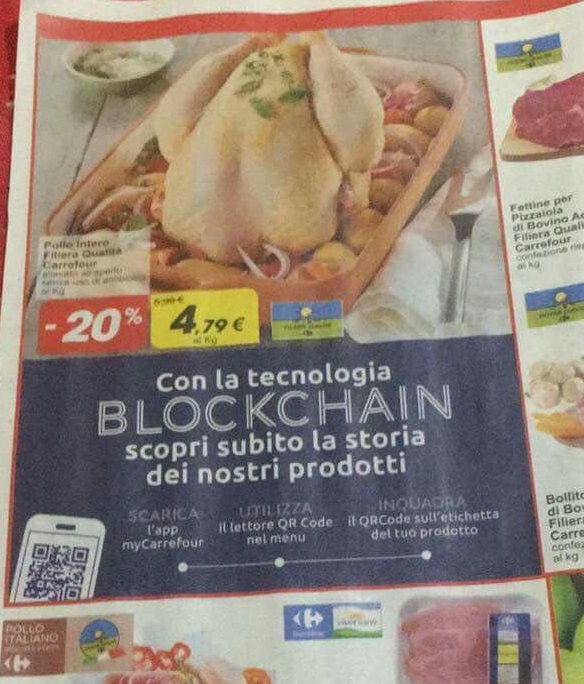Oct 11, 2018
Not a blockchain!
If 25 years ago somebody would have claimed to deliver pizza as e-mail attachment, the implausibility would have probably been lost for most people, as almost nobody was familiar with e-mail at the time. Similarly, today Carrefour Italia and others claim to track food using blockchain.
Whoever promotes QR encoded URLs as blockchain must be ridiculed. A legitimate QR code can be simply copied on illegitimate products: as such the landing web page is not reliable at all.
Moreover, it is true and far-reaching that the (bitcoin) blockchain can guarantee time-stamping, but it cannot guarantee validity, correctness, or accuracy of the content being time-stamped. So, despite landing on a legitimate web page, whatever has been time-stamped on the blockchain and is displayed on that web page can be simply false. You can order pizza via e-mail, but it cannot be delivered by e-mail.
Finally, if https is not used, if the time-stamping is not digitally signed, if a non-bitcoin blockchain is used, all these details do compromise the reliability further.
IBM Food Trust, EY Wine Blockchain, this Carrefour attempt, and similar campaigns are just dishonest marketing gimmick, i.e. misleading advertising.
What is infuriating about these initiatives is the attempt to promote trust in non-sound technological choices; according to the noted security expert Bruce Schneier “supply-chain security is an incredibly complex problem” (see The Washington Post): what is an “insurmountable problem right now” for electronics, it is a daunting task for chickens too.

